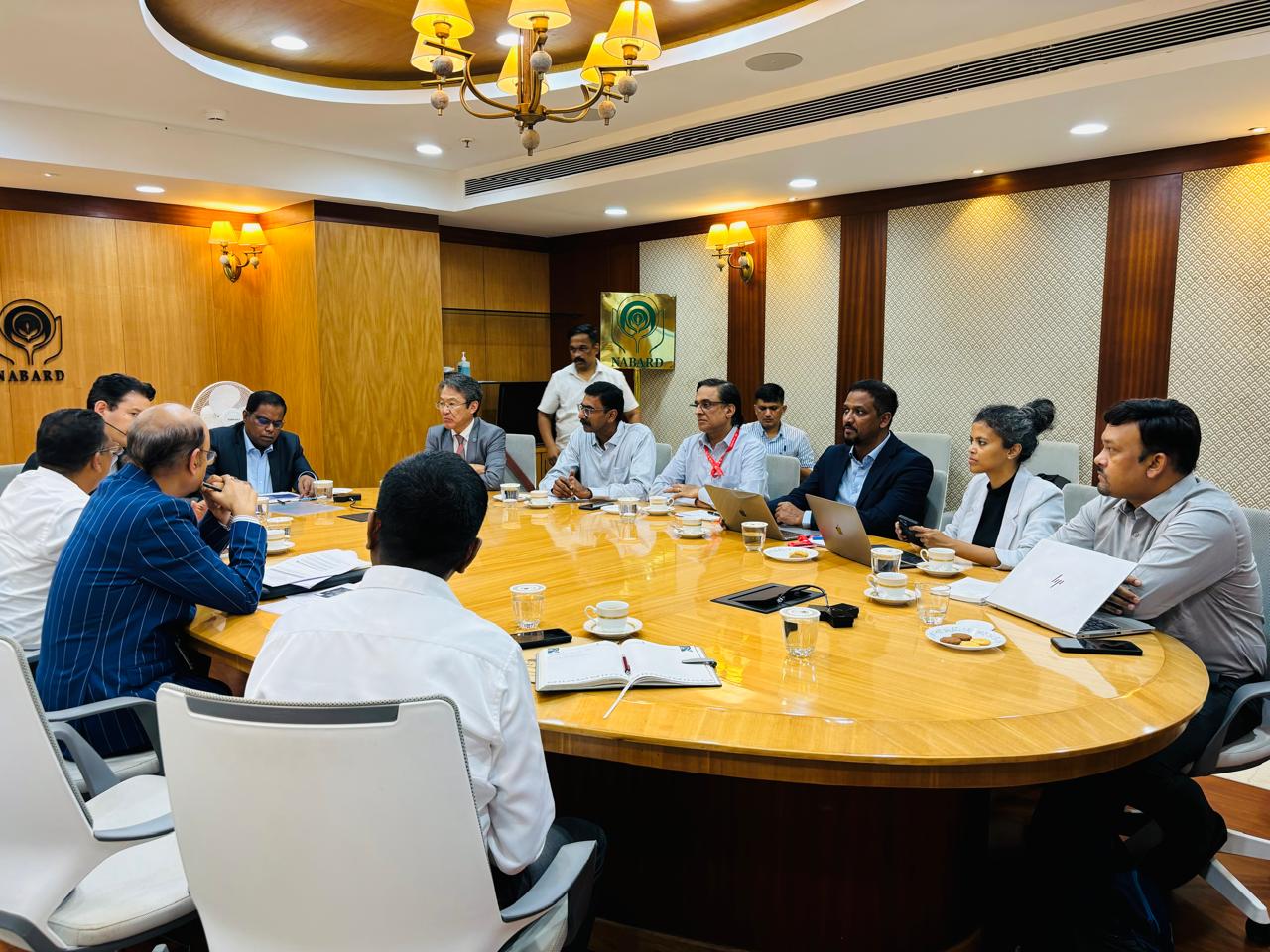FAO and NABARD strengthen collaboration to develop carbon fund in India

The Food and Agriculture Organization of the United Nations (FAO) and the National Bank for Agriculture and Rural Development (NABARD) held a high-level meeting in Mumbai to forge partnerships and strengthen collaboration between the two organizations. The meeting, led by Shaji K V, Chairman of NABARD, and Takayuki Hagiwara, FAO Representative in India, marked a significant step towards collaborative efforts in developing a carbon fund, strengthening Farmer Producer Organizations (FPOs), and promoting sustainable agrifood systems in India.
The meeting witnessed the participation of key officials from NABARD, including Govardhan S Rawat, Deputy Managing Director, Dr K Inkarsal, Chief General Manager, and Sanjoy Ghosh and Sukant Sahoo, both Deputy General Managers. The FAO team comprised Dr Konda Reddy Chavva, Assistant FAO Representative (Programme), Raman Ahuja, Kulranjan Kujur, Vinay Singh and Pooja Chowdhary.
The meeting focused on leveraging the expertise of FAO and NABARD to create a robust framework for supporting smallholder farmers, enhancing their ability to adapt to climate change, and integrating them into the growing carbon market.
NABARD highlighted its commitment to supporting the Government of India's climate goals by deepening its involvement in the voluntary carbon market. Sanjoy Ghosh presented the joint concept of developing a carbon fund in India by FAO and NABARD which is currently in its early-stage project development. This fund is envisioned to support a portfolio of initiatives focusing on aggregating carbon projects, standardizing baselines, and building capacity for smallholder farmers. The establishment of this fund is intended to provide a financial mechanism for monetizing carbon credits, thus offering economic incentives to farmers who adopt climate-smart practices.
A major focus of the collaboration is to provide technical assistance and capacity building to various stakeholders, including project developers, state agricultural universities, and smallholder farmers. The creation of an aggregation platform will be a critical component of this effort, enabling smaller farmers to participate effectively in carbon markets.
FAO expressed interest in supporting India’s efforts to establish a robust carbon finance framework. Both FAO and NABARD are committed to creating a sustainable environment for carbon trading that not only benefits the agrifood sector but also positions India as a leader in climate resilience initiatives.
The meeting concluded with an in-principle agreement to proceed with developing a carbon fund project. Action points include the drafting of a Memorandum of Understanding (MoU), approaching relevant ministries for support, and engaging with international donors and financial institutions. This collaboration between FAO and NABARD sets a precedent for impactful climate action and paves the way for a sustainable future for Indian agriculture.

